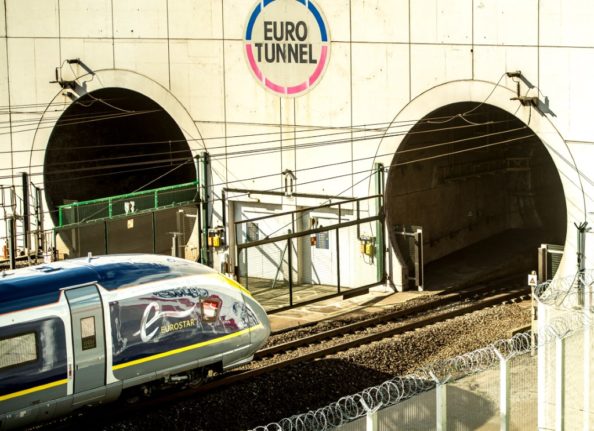Speaking at the Swiss Travel Association conference last week, Philipp Mäder, head of SBB’s international passenger transport, said the company is continuing to examine the possible introduction of a direct rail link between the two cities.
Specifically, the plan calls for an Eurostar train from Basel that would reach London in about five hours via the Eurotunnel.
Why does the SBB want to expand into London via a direct rail route?
The simple answer is that, judging by air traffic, London is a popular destination for travellers from Switzerland — dozens of daily flights to the UK capital leave from Swiss airports each day.
However, there is currently no direct rail route between Switzerland and London.
London-bound Swiss travellers have to take a train in Basel, Geneva, or Lausanne and change at Paris’ Gare de Lyon station.
From there, passengers must take the metro to Paris Gare du Nord and then embark on a connecting train to London’s St Pancras station.
That may be the reason why many London-bound passengers prefer to fly rather than travel by train(s).
How would the proposed new rail route change that?
According to Swiss MP Matthias Aebischer, who spearheaded the idea of this direct train link already in May, strengthening rail transport is an essential step towards limiting CO2 emissions.
With a convenient train service between Switzerland and the UK, many environmentally-conscious travellers would switch from air to rail, Aebischer said — and the SBB has heard this call.
Is this idea feasible and, if so, when might we see this train in service?
While a number of legislators are in favour of the plan, some of the already identified difficulties would have to be solved before taking this project to the next level.
As SBB’s Mäder pointed out, “The infrastructure is expensive on this route – partly because of the journey through the Eurotunnel.”
From the logistics point of view, since the UK has left the EU and only participates in the Schengen Agreement to a limited extent, boarding the train in Switzerland would involve both security and passport controls akin to those required at its airports, which would require new checkpoints to be created in Basel’s SBB station.
And given its international reach, Switzerland can’t set up the connection on its own.
According to the Federal Council, the project can only proceed in close cooperation not only with the UK and France, but also with an operating company like Eurostar.
Considering all the steps that still need to be taken, the actual launch of this direct rail link is still way off in the future.
READ ALSO: Switzerland mulls new direct Basel to London train connection
The Paris to London link however is set to be shaken up by competition with three rival companies to Eurostar hoping to run train through the Eurotunnel in future.
Getlink, which owns and operates the Channel Tunnel, has said that there is capacity to double the number of daily services between the UK and Europe.
However, it is not clear where passengers on these services will be checked-in and have their passports processed – since Brexit Eurostar has been forced to run a third less services due to limited space at London St Pancras station and the increased security checks required since the border became an EU external border.
READ ALSO: Two more rail operators plan Eurostar-rival services between France and UK



 Please whitelist us to continue reading.
Please whitelist us to continue reading.
Member comments